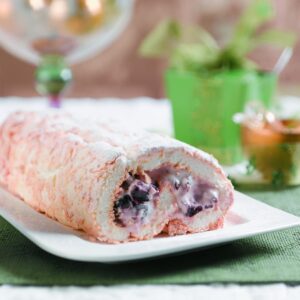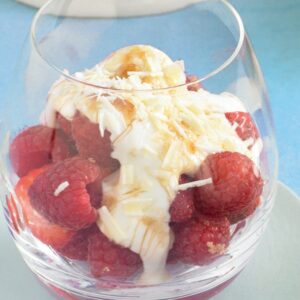
Dietitian Angela Berrill looks at causes, triggers, treatments and remedies for oral herpes (cold sore) symptoms, and dispels common myths about cold sores.
If you have ever experienced that tingling or burning sensation in the corners of your mouth, announcing the imminent arrival of a cold sore, you know that with it also comes a sense of dread.
Herpes labialis, more commonly known as a cold sore, is a common viral infection caused by the herpes simplex virus (HSV). The sores and blisters typically heal after eight to 10 days. Cold sores are contagious and easily spread from person to person, until the sores are completely covered by scabs.
They typically occur on the face, most notably on the lips, chin, cheeks or even in the nostrils. On rare occasions, they may also develop inside the mouth.
What causes cold sores?
Cold sores are a direct result of HSV infection. HSV-1 is the most common type of the virus, usually causing oral-facial herpes. HSV-2, which usually causes genital herpes, may also occasionally cause oral-facial herpes. Once you have been infected with HSV, you remain infected for life. But some people can be infected with the virus yet never experience a cold sore outbreak.
Cold sores are caused by close physical contact with an infected individual. Most people will have come into contact with the virus between the ages of three and five, often by being kissed by a relative who carries the virus.
The virus tends to remain hidden in the nerve tissue of a person’s face for most of their life.
Flare-ups may occur from time to time, when stressors or triggers occur. These occurrences tend to become less frequent with age.
What can trigger cold sores?
In some people, there is no definite cause but, depending on the person, there is a wide variety of triggers, including:
- Menstruation
- Trauma
- Fever
- Extreme tiredness
- Exposure to sunlight
- Extreme weather conditions
- Anything that lowers the immune system such as a cold, flu, stress or general illness.
How are cold sores best prevented and treated?
Usually cold sores will heal themselves. There are a number of over-the-counter antiviral creams or tablets sold in pharmacies that can help prevent or heal them more quickly. Treatment should begin at the sign of the first symptom.
To help treat and prevent transmission of the HSV virus:
- Wash your hands before and after touching the cold sore.
- Try to avoid touching the cold sore and then touching or rubbing your eyes.
- If you wear contact lenses, do not use saliva to wet them.
- Don’t share flannels, towels, drinking utensils or cosmetics.
- Do not pick off scabs – this may cause infection or scarring.
- Ice or a warm wash cloth held against the blisters, may help ease any pain.
- If you have blisters in your mouth, try gargling with cool water or eating ice blocks.
- Rinse your mouth with salt water or a pain-relieving mouthwash.
- Take pain relief such as paracetamol or ibuprofen.
- If blisters appear infected, apply antibacterial ointment (from your doctor).
Make sure you don’t get run down
Periods of psychological stress have been linked to the recurrence of cold sores.
Stress management techniques may be beneficial.
Avoid processed food
Following a balanced eating pattern that includes mostly whole foods, with plenty of vegetables and fruit, is one of your body’s best lines of natural defence. It is recommended you limit heavily processed foods, but you do not need to avoid or ban these foods entirely.
Common cold sore remedies – fact or fiction?
Lysine and arginine
Lysine is an essential amino acid believed to help prevent cold sores, whereas arginine is an amino acid needed by HSV in order to grow. High dietary lysine intake is thought to result in lower arginine levels through a number of mechanisms in the body. A high lysine/low arginine ratio within HSV cells has been shown to inhibit growth of the virus in lab studies.
But there is limited evidence to suggest lysine supplements (1g-3g per day) or lysine ointment help prevent cold sores or heal them faster. Lysine can be found in foods such as cheese, eggs, fish, chicken and red meat.
A few lab studies suggest avoiding foods high in arginine may help lysine work against cold sores, but there have been no human studies. Arginine is found in foods such as seeds, nuts, chocolate and wheat germ.
If you suffer recurring cold sores and want to try altering the arginine and lysine content of your diet, see a dietitian.
Vitamin C
While vitamin C is often thought to help prevent or cure cold sores, there is no evidence to indicate supplementation alone does so.
Zinc
Zinc supplementation is believed to help prevent or treat recurrent cold sore infections by preventing HSV cells from multiplying.
While evidence looks promising, more research is needed before zinc supplements can be recommended.
Lemon balm
Lemon balm (Melissa officinalis) is a herb from the mint family. Evidence from a small trial suggests application of a lemon balm ointment to the affected area, four times a day over five days, may help alleviate symptoms and reduce duration of the infection.
However, more clinical trials are needed to confirm this finding.
Further reading
herpes.org.nz/patient-info/facial-herpes/
Article sources and references
- Chi C et al. 2015. Measures for preventing cold sores. Cochrane Database of Systematic Reviews CD010095
- Health Navigator. Cold Sores, healthnavigator.org.nz Accessed July 2018https://www.healthnavigator.org.nz/health-a-z/c/cold-sores/
- Koytchev R et al. 1999. Balm mint extract (Lo-701) for topical treatment of recurring herpes labialis. Phytomedicine. 6:225-30
- Practice-based Evidence in Nutrition (PEN). Integumentary System (Skin, Hair, Nail Health), pennutrition.com Accessed July 2018
- The New Zealand Herpes Foundation. Facial Herpes, herpes.org.nz Accessed July 2018https://www.herpes.org.nz/patient-info/facial-herpes/
- US National Library of Medicine. Herpes – oral, medlineplus.gov Accessed July 2018https://medlineplus.gov/ency/article/000606.htm
www.healthyfood.com










